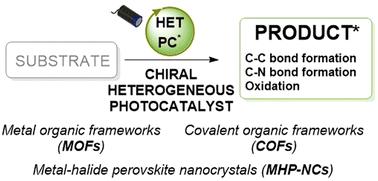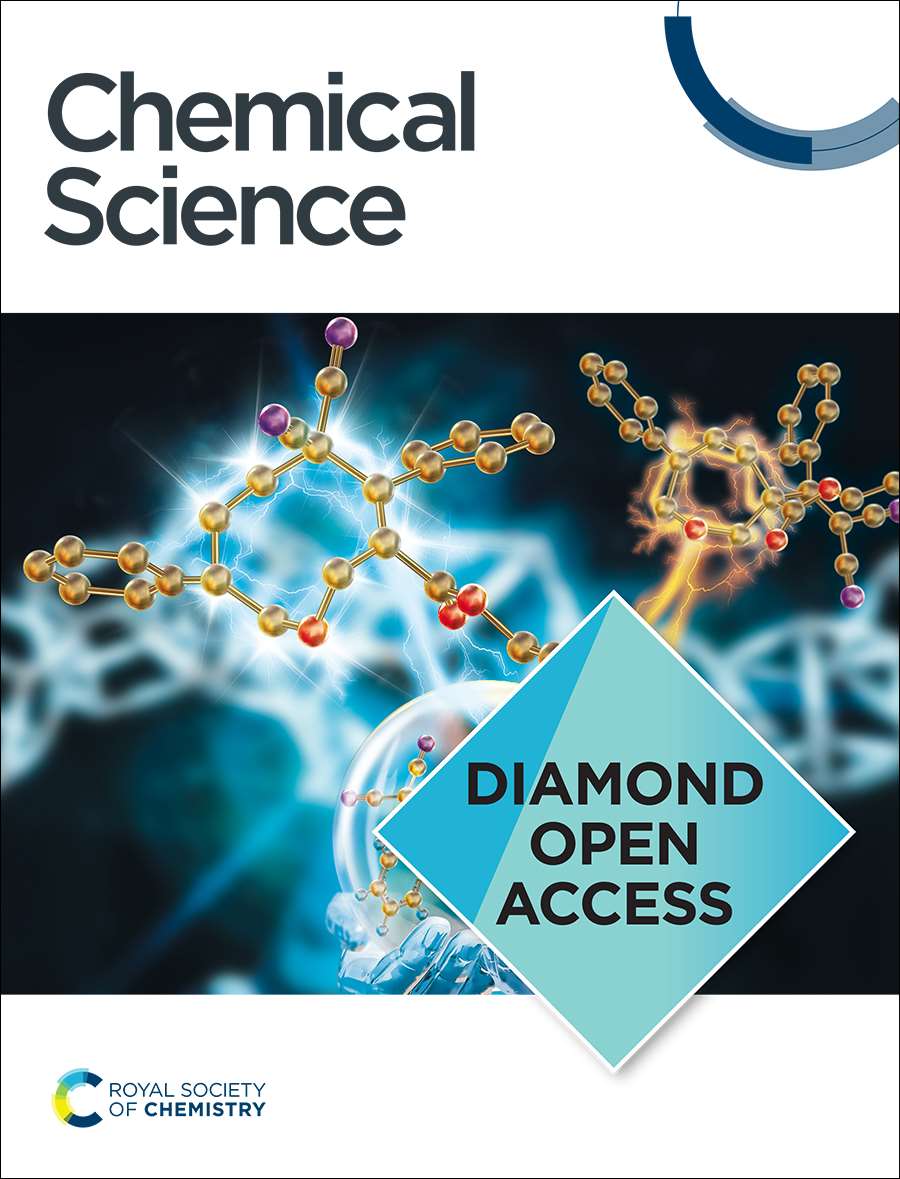手性非均相光催化剂对映选择性合成:站在有机催化的肩膀上
IF 7.4
1区 化学
Q1 CHEMISTRY, MULTIDISCIPLINARY
引用次数: 0
摘要
对合成化学家来说,制造能够控制绝对立体化学的有机分子是一项具有挑战性的任务。本展望涵盖了最近基于手性非均相光催化剂的对映选择性转化的例子,包括金属-有机框架(MOFs),共价有机框架(COFs)和杂化金属-卤化物钙钛矿(MHPs)。这种材料将光催化单元和手性元素结合在一起:前者负责底物活化,而后者,通常是一个小有机分子,即有机催化剂,负责立体感应。尽管合成应用仍然局限于少量(基准的)C-C和C-N键形成和氧化协议,但它们的数量有望在不久的将来稳步增长。这一趋势得到了来自不对称有机催化领域的跨学科知识转移的支持,这也推动了这些材料在更广泛领域的应用,如太阳能-化学能转换和手性传感技术。本文章由计算机程序翻译,如有差异,请以英文原文为准。

Chiral heterogeneous photocatalysts for enantioselective synthesis: standing on the shoulders of organocatalysis
Crafting organic molecules with control over their absolute stereochemistry is a challenging task for synthetic chemists. The present Perspective encompasses recent examples of enantioselective transformations based on chiral heterogeneous photocatalysts, including metal–organic frameworks (MOFs), covalent organic frameworks (COFs) and hybrid metal-halide perovskites (MHPs). Such materials combine a photocatalytic unit and a chiral element in a single component: the former is responsible for substrate activation, while the latter, typically a small organic molecule – i.e., an organocatalyst –, takes care of stereoinduction instead. Although synthetic applications are still limited to a handful of (benchmark) C–C and C–N bond formations and oxidation protocols, their number is expected to grow steadily in the near future. This trend is supported by cross-disciplinary knowledge transfer from the field of asymmetric organocatalysis, which is also driving the application of these materials in broader areas, such as solar-to-chemical energy conversion and chiral sensing technologies.
求助全文
通过发布文献求助,成功后即可免费获取论文全文。
去求助
来源期刊

Chemical Science
CHEMISTRY, MULTIDISCIPLINARY-
CiteScore
14.40
自引率
4.80%
发文量
1352
审稿时长
2.1 months
期刊介绍:
Chemical Science is a journal that encompasses various disciplines within the chemical sciences. Its scope includes publishing ground-breaking research with significant implications for its respective field, as well as appealing to a wider audience in related areas. To be considered for publication, articles must showcase innovative and original advances in their field of study and be presented in a manner that is understandable to scientists from diverse backgrounds. However, the journal generally does not publish highly specialized research.
 求助内容:
求助内容: 应助结果提醒方式:
应助结果提醒方式:


